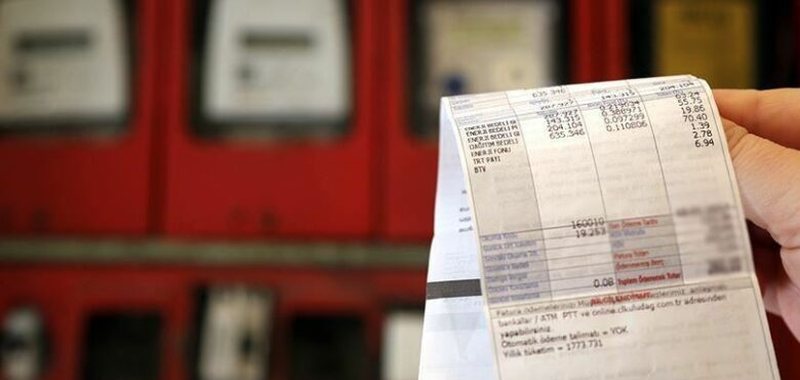“Energjia gjeotermike, drejt zgjerimit global” - IEA liston avantazhet në raport me burimet e tjera të rinovueshme

"Energjia gjeotermike mund të shohë një rritje globale transformuese falë përparimeve në teknologji dhe ekspertizës nga sektori i naftës dhe gazit," tha Agjencia Ndërkombëtare e Energjisë (IEA) në një raport të dhjetorit me titull "E ardhmja e Energjisë Gjeotermike". Agjencia ka shpalosur vlerësimin e saj për kapacitetin e mundshëm të gjenerimit të energjisë gjeotermike në 800 GW, pothuajse të mjaftueshëm për të furnizuar të gjitha ekonomitë e BE-së ose të SHBA-së.
Sipas Fatih Birol, Drejtorit Ekzekutiv të Agjencisë, ekziston një potencial i madh i pashfrytëzuar në energjinë gjeotermike për të ofruar energji të pastër dhe të sigurt në mbarë botën që zgjidh gjithashtu problemet më themelore të energjisë së rinovueshme: varësinë ndaj kushteve të motit. Me konsumin e energjisë elektrike që pritet të rritet për shkak të përdorimit në rritje të ajrit të kondicionuar, automjeteve elektrike dhe qendrave të të dhënave, ky burim ofron një alternativë të besueshme.
Potenciali i energjisë gjeotermike është masiv. Agjencia e Energjisë ka rritur dhjetëfish vlerësimin e saj për fuqinë totale të disponueshme nga toka në 800 GW, pak më pak se rreth 1000 GW që gjeneruan SHBA ose Evropa vitin e kaluar, nga 16.3 GW të prodhuara globalisht në 2023.
Ky burim nuk do të zëvendësojë kurrë energjinë diellore dhe të erës, të cilat do të mbeten më të lira për t'u prodhuar dhe më të lehta për t'u instaluar, por raporti shpjegon se do të përbëjë 15% të rritjes së kapacitetit të ri gjenerues deri në vitin 2050.
Zgjerimi i shpejtë do të nxitet nga avantazhet kryesore që gëzon ndaj burimeve të tjera të rinovueshme. Së pari, është tërësisht pa emetim, pasi thjesht tërheq nxehtësinë nga bërthama e tokës që ka mbetur nga formimi i planetit, ngjeshja gravitacionale dhe shkatërrimi radioaktiv i izotopeve brenda bërthamës. Gjithashtu, kjo energji është e pakufishme. Së dyti, energjia e prodhuar është e vazhdueshme, nuk varet nga moti dhe as nga cikli ditor.
Por për të realizuar 800 GW kapacitet të parashikuar nga Agjencia, qeveritë dhe investitorët privatë do të duhet të shpenzojnë rreth 1 trilion dollarë gjatë dekadës së ardhshme, e njëjta shifër që tashmë është investuar për energjinë e erës në shtatë vitet e fundit dhe për energjinë diellore vetëm në tre vitet e mëparshme.

Transfertat personale të parave: Cili vend i BE-së dërgon më shumë jashtë bllokut dhe ku renditet vendi ynë?
Sasia e parave që njerëzit dërgojnë jashtë Bashkimit Europian po rritet me shpejtësi. Që nga viti 2018, ajo u hodh me 20 miliardë euro, duke arritur një......

Eksportet ngadalësojnë rënien, por “drama” vazhdon/ Në 11 muaj, të huajt blenë rreth 55.7 mld lekë më pak mallra se vjet
Rënia e eksporteve duket se është ngadalësuar në muajin Nëntor të këtij viti tregojnë të dhënat më të fundit nga “Instituti i Statistikave”. Në muajin e......

Sa këmbehen sot valutat kryesore?
Dollari amerikan është blerë sot me 92.9 lekë dhe është shitur me 94 lekë sipas kursit të këmbimit lokal. Monedha europiane blihet sot me 97.9 lekë dhe......

Falen gjobat për ndërtimet pa leje në fshat - Opozita kërkon zgjerimin e iniciativës edhe për objektet bujqësore në qytete
Të gjitha masave administrative të vendosura nga 1 Janari 2015 deri në 30 Nëntor të vitit 2024, në zonat rurale nga inspektoratet vendore të mbrojtjes së......

Sa borxh të brendshëm do marrë qeveria në 2025? - Emetohen 356.40 mld lekë tituj qeveritarë. Obligacione 20-vjeçare si testim tregu
Huamarrja e brendshme, e thënë ndryshe emetimi i titujve qeveritarë, si bonot e thesarit dhe obligacionet, pritet të financojë rreth 73.47% të deficitit......

41 mln euro për Laboratorët Inteligjentë - Spahiu: Janë digjitalizuar 200 shkolla, projekti përfundon në 2028
Si një nga kriteret e vendosura nga Bashkimi Europian për të anëtarësuar Shqipërinë është edhe digjitalizimi i arsimit në vend. Gjatë Komisionit parlamentar......

“Tarifa e energjisë nuk do të rritet” - ERE rrëzon kërkesën e OST për transmetimin, mbetet 0.85 lekë/kWh
Enti Rregullator i Energjisë ka rrëzuar kërkesën e Operatorit të Sistemit të Transmetimit për rritjen e tarifës së transmetimit të energjisë......

Si do të luftohen mashtrimet me taksat? - Plani i ri strategjik i tatimeve 2024-2028 me 4 shtylla kryesore
Administrata tatimore ka prezantuar planin strategjik 2024-2028 i cili synon ndërtimin e një "Administrate të zgjuar dhe moderne”. Plani fokusohet në katër......

















